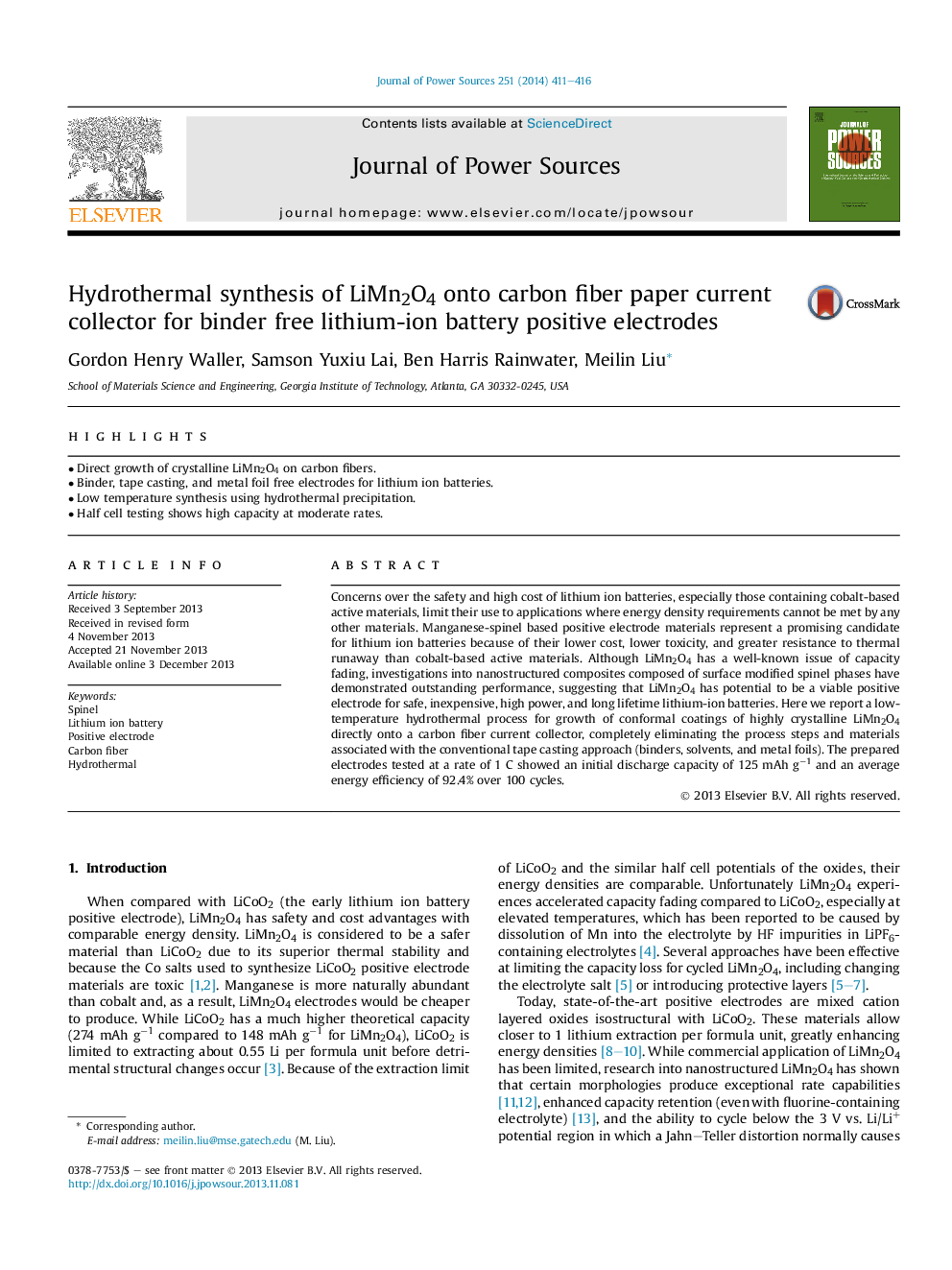| Article ID | Journal | Published Year | Pages | File Type |
|---|---|---|---|---|
| 7737857 | Journal of Power Sources | 2014 | 6 Pages |
Abstract
Concerns over the safety and high cost of lithium ion batteries, especially those containing cobalt-based active materials, limit their use to applications where energy density requirements cannot be met by any other materials. Manganese-spinel based positive electrode materials represent a promising candidate for lithium ion batteries because of their lower cost, lower toxicity, and greater resistance to thermal runaway than cobalt-based active materials. Although LiMn2O4 has a well-known issue of capacity fading, investigations into nanostructured composites composed of surface modified spinel phases have demonstrated outstanding performance, suggesting that LiMn2O4 has potential to be a viable positive electrode for safe, inexpensive, high power, and long lifetime lithium-ion batteries. Here we report a low-temperature hydrothermal process for growth of conformal coatings of highly crystalline LiMn2O4 directly onto a carbon fiber current collector, completely eliminating the process steps and materials associated with the conventional tape casting approach (binders, solvents, and metal foils). The prepared electrodes tested at a rate of 1 C showed an initial discharge capacity of 125 mAh gâ1 and an average energy efficiency of 92.4% over 100 cycles.
Related Topics
Physical Sciences and Engineering
Chemistry
Electrochemistry
Authors
Gordon Henry Waller, Samson Yuxiu Lai, Ben Harris Rainwater, Meilin Liu,
